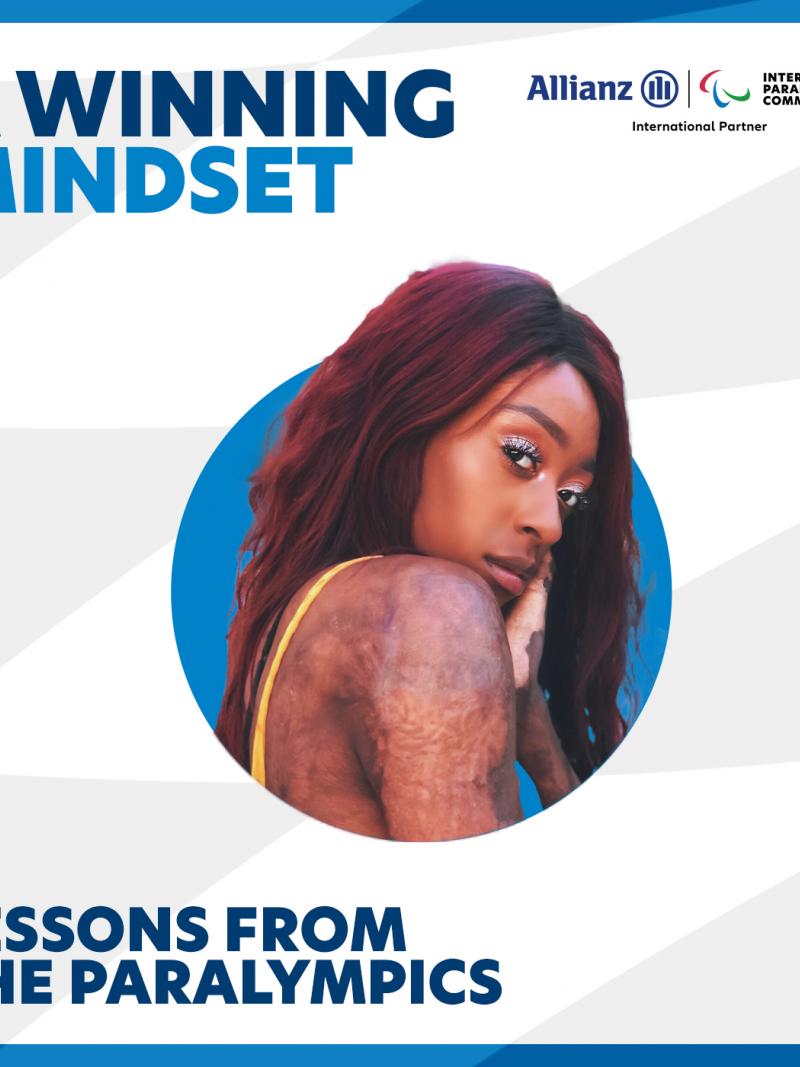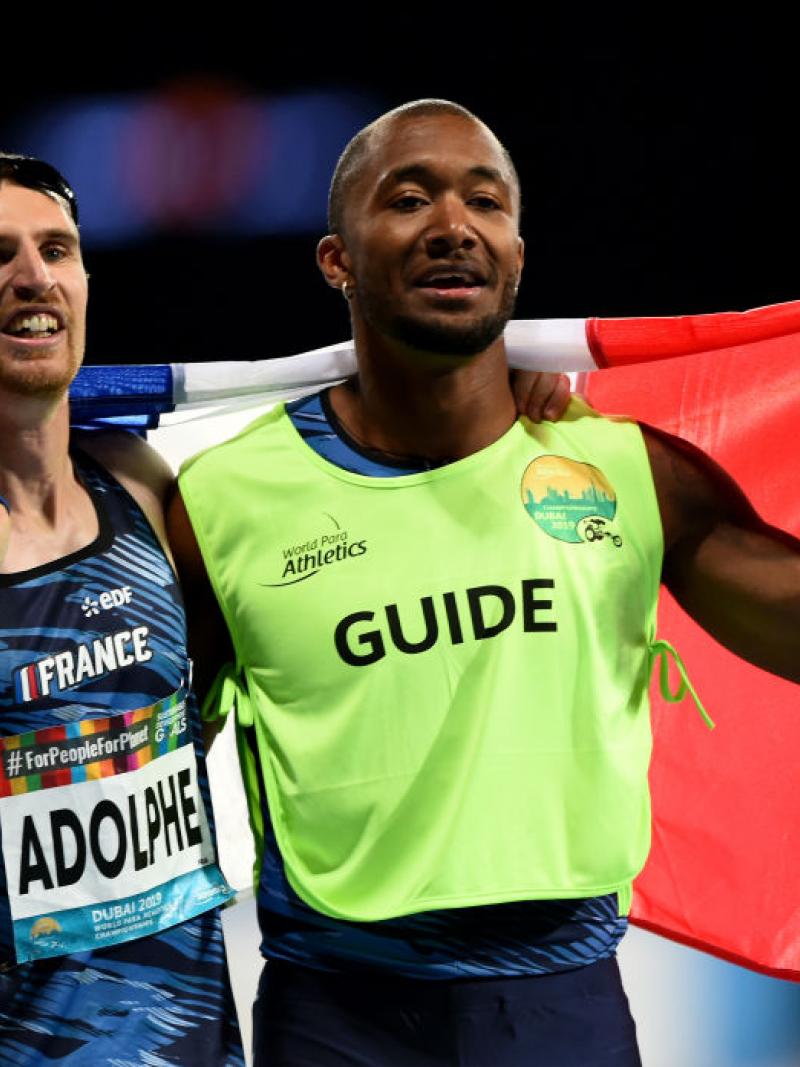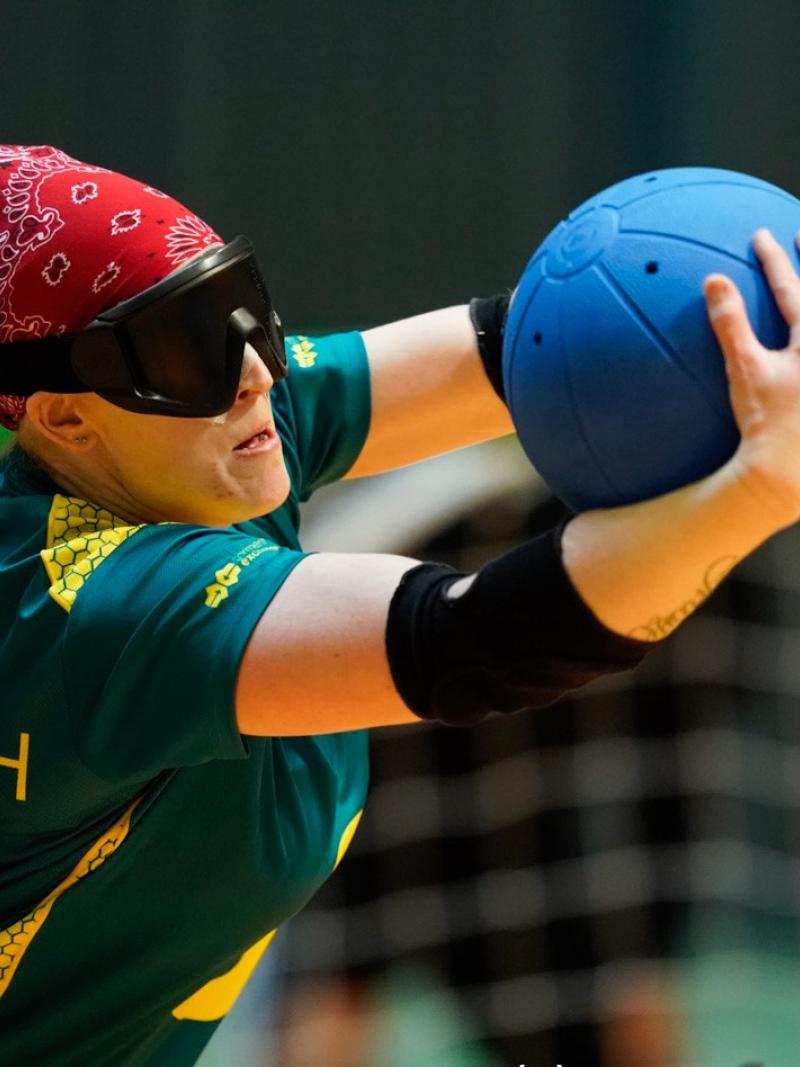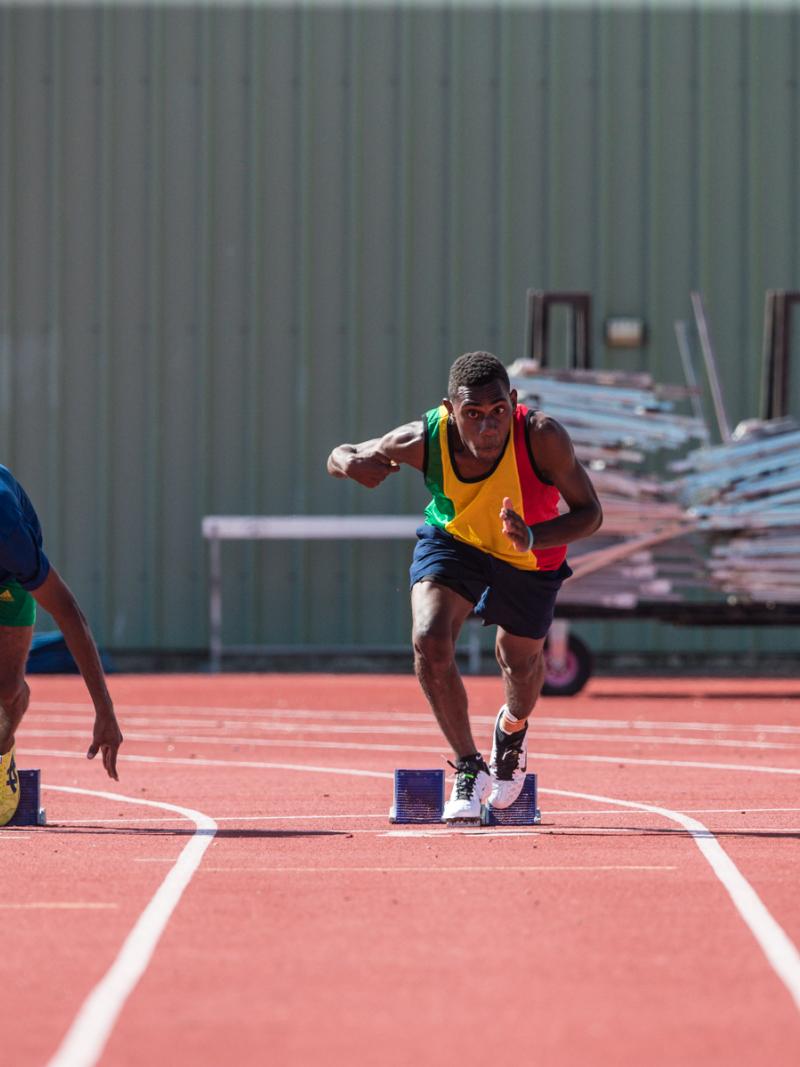Grace Wembolua: ‘I’m a female, I’m Black, I’m disabled’
French wheelchair basketball player’s journey from surviving an arson attack to developing body confidence 08 Oct 2020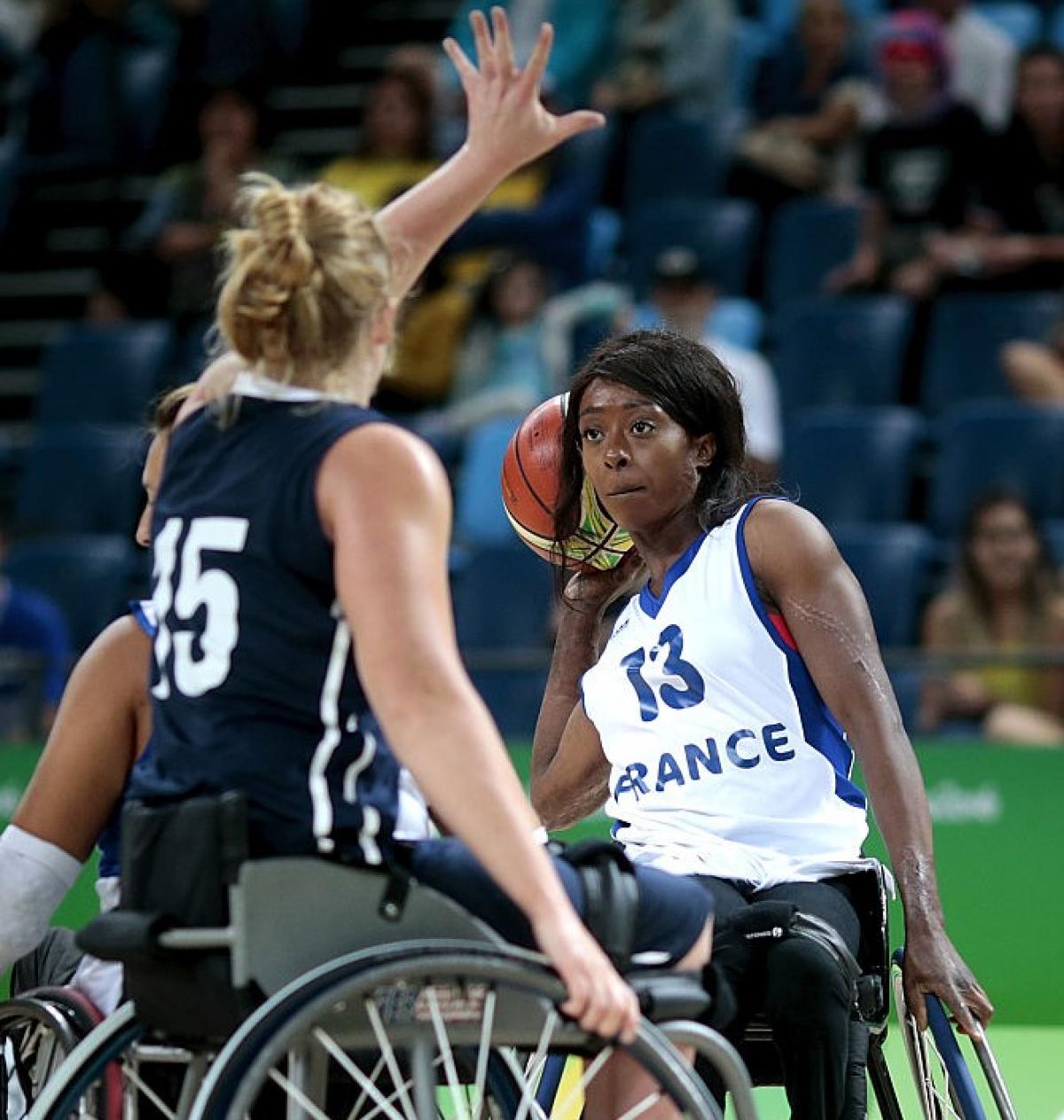
Grace Wembolua enjoys a celebrity status in Bordeaux, France. The adulation for the wheelchair basketball player was in full display in the run-up to the Rio 2016 Paralympic Games. The city known for its opulent vineyards, rose in unison in support with her billboards lining the streets.
Such public display of affection was something Wembolua could not have imagined years ago, especially battling with body confidence since surviving an arson attack as a four-year-old.
“I’m a female, I’m Black, I’m disabled. It’s a lot of things people would see as a disadvantage,” Wembolua reflected in the episode six of "A Winning Mindset: Lessons From The Paralympics. “But for a whole city to support and post big, big pictures of myself with a message of encouragement, it was mind blowing and it really changed the way people were seeing disabled sports.”
Wembolua began playing wheelchair basketball in 2012 and made her Paralympic debut at Rio 2016. But changing people’s perception on Para sports and Para athletes was not her biggest obstacle.
Surviving
Wembolua vividly recalled the night the accident happened, as she “literally walked into the flames.”
“When the flames started coming towards me, I was like ‘Oh my God, I’m scared and I want to go see my mom,’” she said. “That’s when I started getting burned.”
She woke up in a hospital three months later, learning then that she lost her mother and brother, that her legs were amputated below the knees, and her whole left arm and other parts of her body were badly burned.
“It was very hard to process this as a four-year-old,” said Wembolua, who was not ready to tell other kids what happened when they asked. She would simply say “I got burned.”
“Kids have this amazing capacity of moving on very quickly, we would then just play.”
Then came teenage years, which Wembolua described as “the most complicated period of my life.”
“And I think that’s where my journey with accepting my body started,” she added.
Teenager
Wembolua would worry what her friends would think if they knew she had prosthetics. With her burns, she could hide them. But if her legs would start hurting, she would say she had a knee problem.
Then her gym class began swimming, which would expose her body more.
It was to her surprised relief that when she explained to her friends about her prosthetics and burns, they did not find it as big a deal as she thought.
“I made a whole big deal about this and was so nervous, and now they were telling me it basically didn’t matter, they didn’t care and if I needed any help they would help me out,” she said.
Social media
The teenage years were about feeling comfortable with her prosthetics. Later on, she became more conscious about her burns. In the summer, she would wear a T-shirt, which exposed her burns and drew stares.
She had to learn how to handle “the gaze of others.”
“It makes me very uncomfortable,” she said.
Wembolua admitted there are good and bad days, and noticed a reason behind such feelings are that others do not know how to react when they see someone with a disability.
With social media being a big part of her life as a young woman, she decided to share her journey on her platforms. Being open, opened up doors to journalists interested in her story and beauty company L'Oréal asking her to be their brand ambassador.
“I had a platform to educate people about differences,” she said.
“I truly think I am still afraid people are going to judge me but I’m my toughest critic,” she continued. “I’m still going to be Grace with two prosthetics and my burn scars. I try to be consistent with my journey so to every day make a little effort.”
While social media can also present an unhealthy view of reality, she gave this advice: “Follow people who inspire you. Do not follow people who make you self-conscious about yourself, because it is actually more draining on your mental health than what you can imagine.”
Sports
Wembolua discovered wheelchair basketball at a rehabilitation centre and in 2012 joined the national academy, making her way to the 2015 European Championships and then her Games debut in Rio the following year.
Questions she got from her family and friends went from asking how she was doing physically to “How’s your season going?”
“When around you people just focus on the sport and are impressed and amazed, this is the power of being a Paralympian,” she said.





